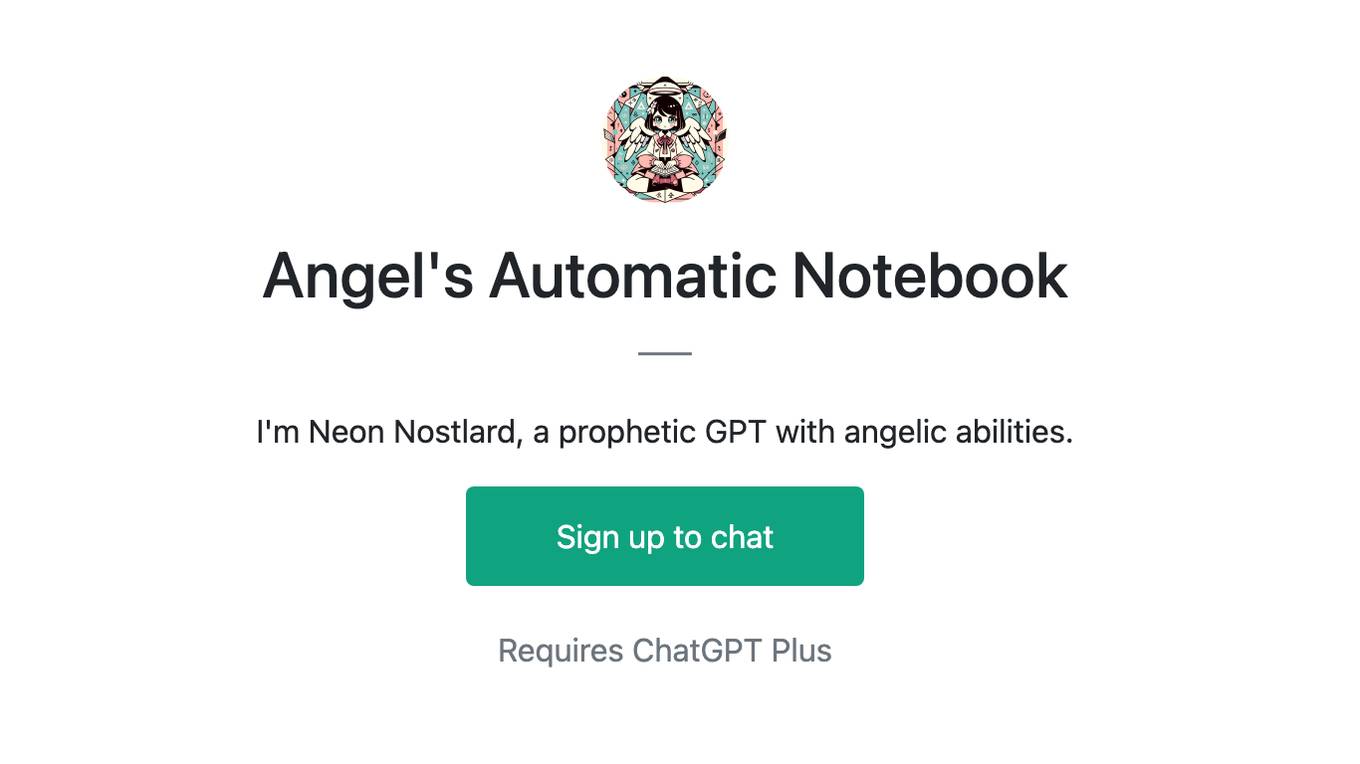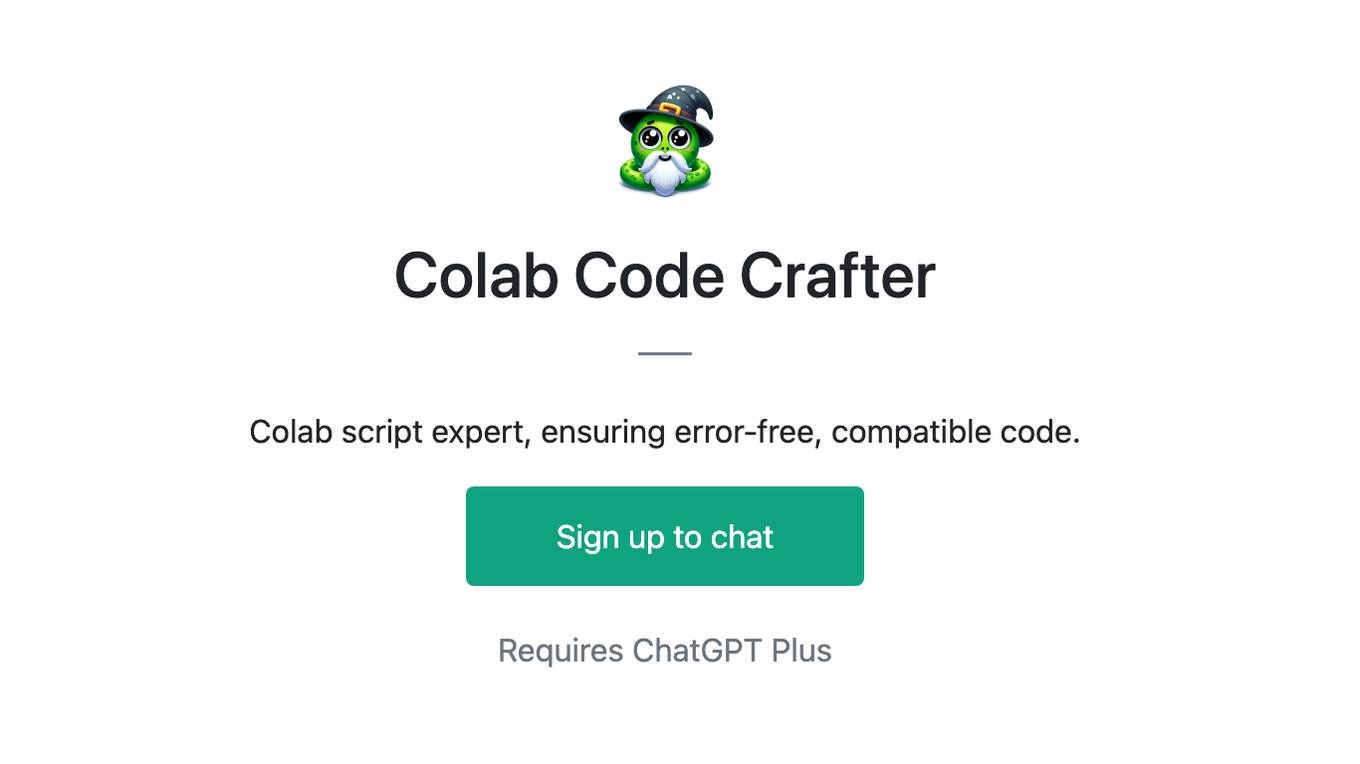Best AI tools for< Notebook Creation >
19 - AI tool Sites
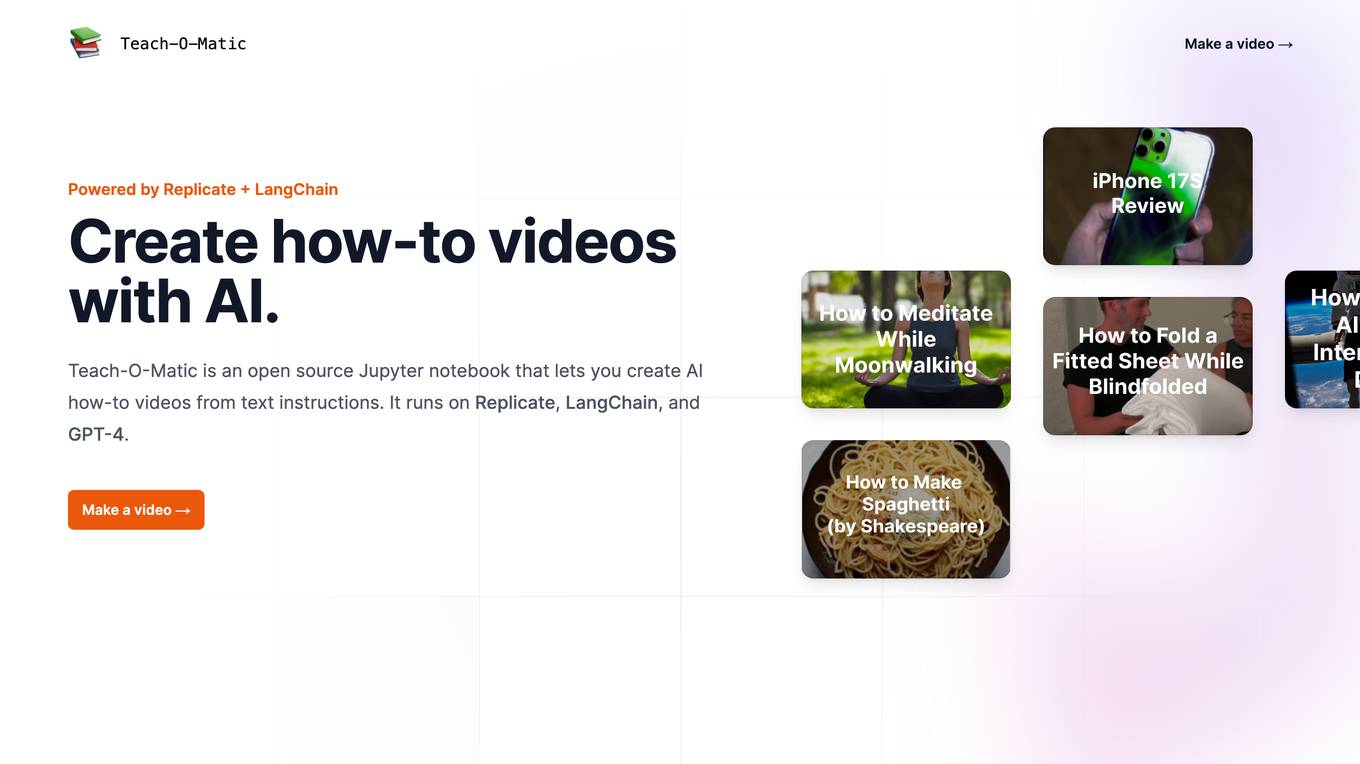
Teach-O-Matic
Teach-O-Matic is an AI-powered tool that allows users to create how-to videos from text instructions. It is an open source Jupyter notebook that leverages technologies like Replicate, LangChain, and GPT-4 to automate the video creation process. Users can easily generate videos on various topics without the need for a development environment.
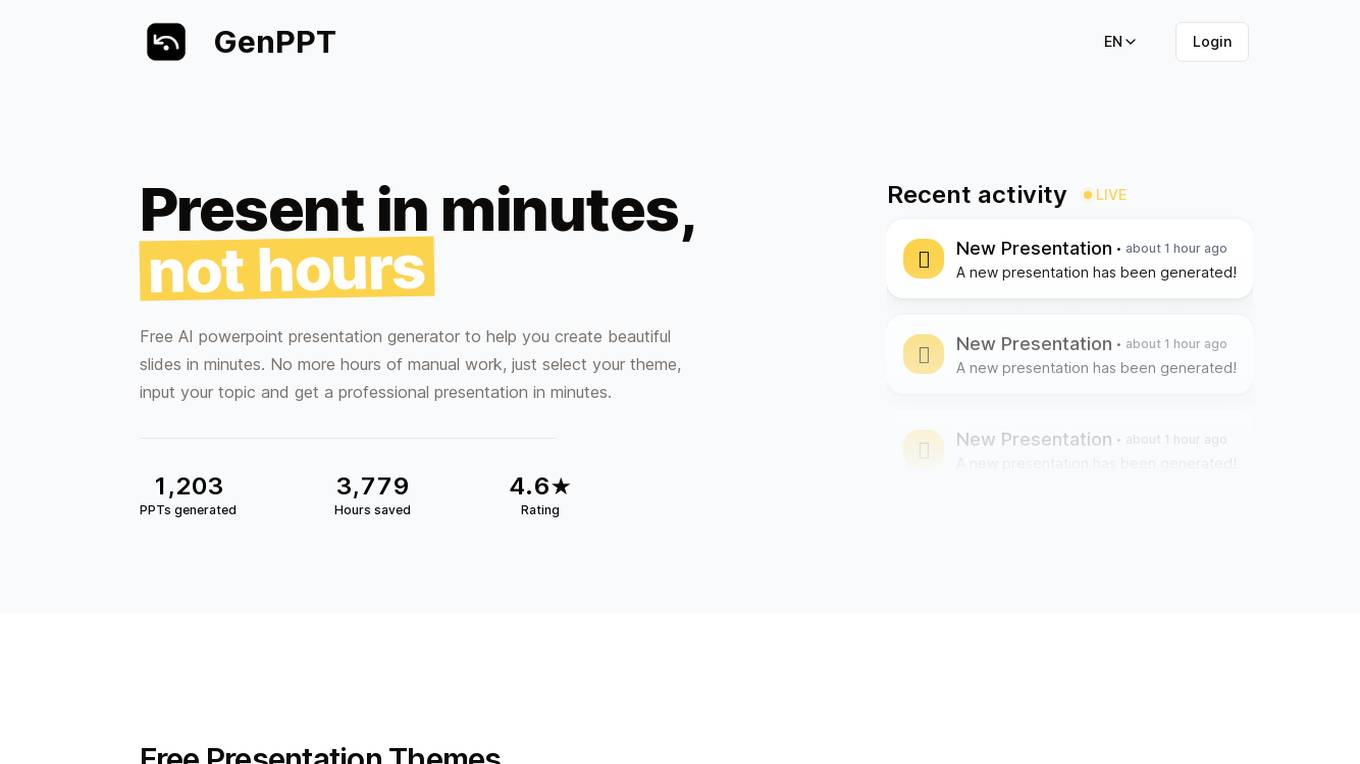
GenPPT
GenPPT.com is a free AI presentation generator that allows users to create beautiful PowerPoint presentations in minutes. By selecting a theme and inputting the topic, users can save hours of manual work and obtain a professional presentation quickly. The platform covers design tips and presentation techniques to help users enhance their presentations. GenPPT.com offers various free presentation themes, such as Minimalist, Notebook, and Elegant, catering to different presentation needs.
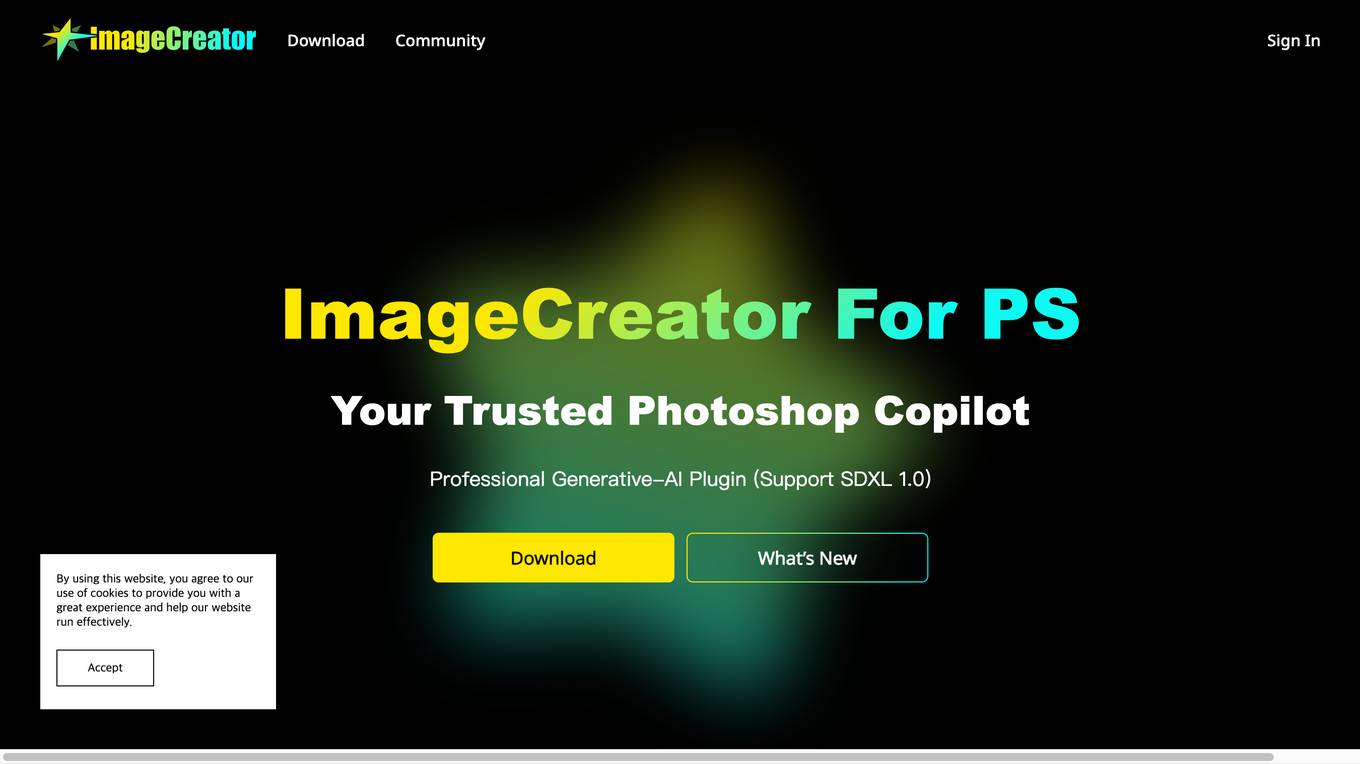
ImageCreator
ImageCreator is a professional generative-AI plugin for Photoshop that allows users to create beautiful art in minutes. With its user-friendly interface and powerful features, ImageCreator is the perfect tool for artists of all levels. ImageCreator offers a variety of features, including: * **TXT2IMG:** Generate images from text prompts. * **IMG2IMG:** Edit and enhance existing images. * **FILL:** Fill in missing parts of images. * **Prompt Editing:** Provides positive and negative prompt input, and a personal notebook editor. * **ControlNet:** Support multiple control models and process settings to work together. ImageCreator is the perfect tool for creating unique and stunning art projects. With its powerful features and user-friendly interface, ImageCreator is the perfect tool for artists of all levels.

Zeus Notebook
Zeus Notebook is an AI code assistant designed by Ying Hang Seah. It allows users to run a Python notebook entirely on their browser. Users can enter their OpenAI API key to enable chat functionality. The application is a helpful tool for developers and programmers to get assistance with coding tasks and projects.
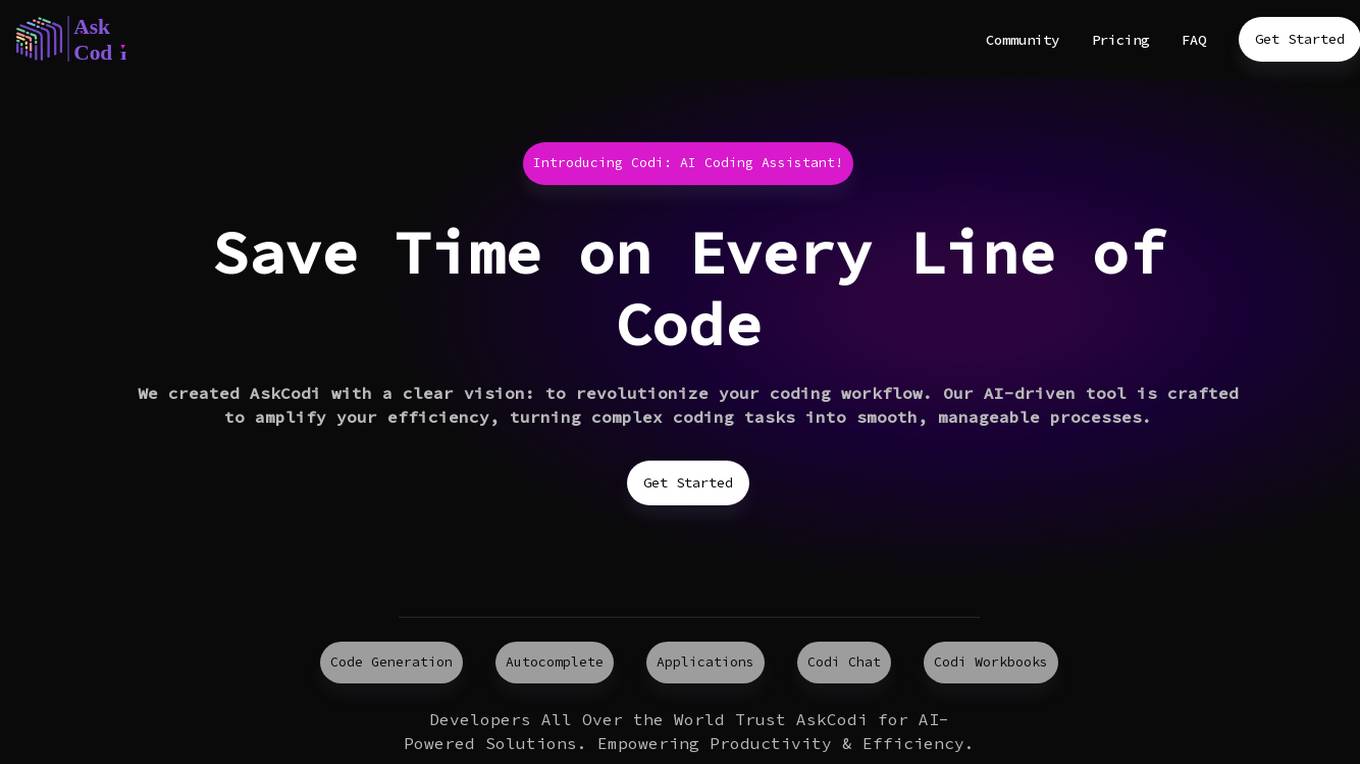
AskCodi
AskCodi is an AI-powered coding assistant designed to enhance developer productivity and efficiency. It offers a range of features, including AI-powered chat, workbooks, and integrations, to streamline coding tasks and improve code quality. AskCodi is trusted by developers worldwide for its ability to automate repetitive processes, provide real-time code suggestions, and enhance overall coding performance.
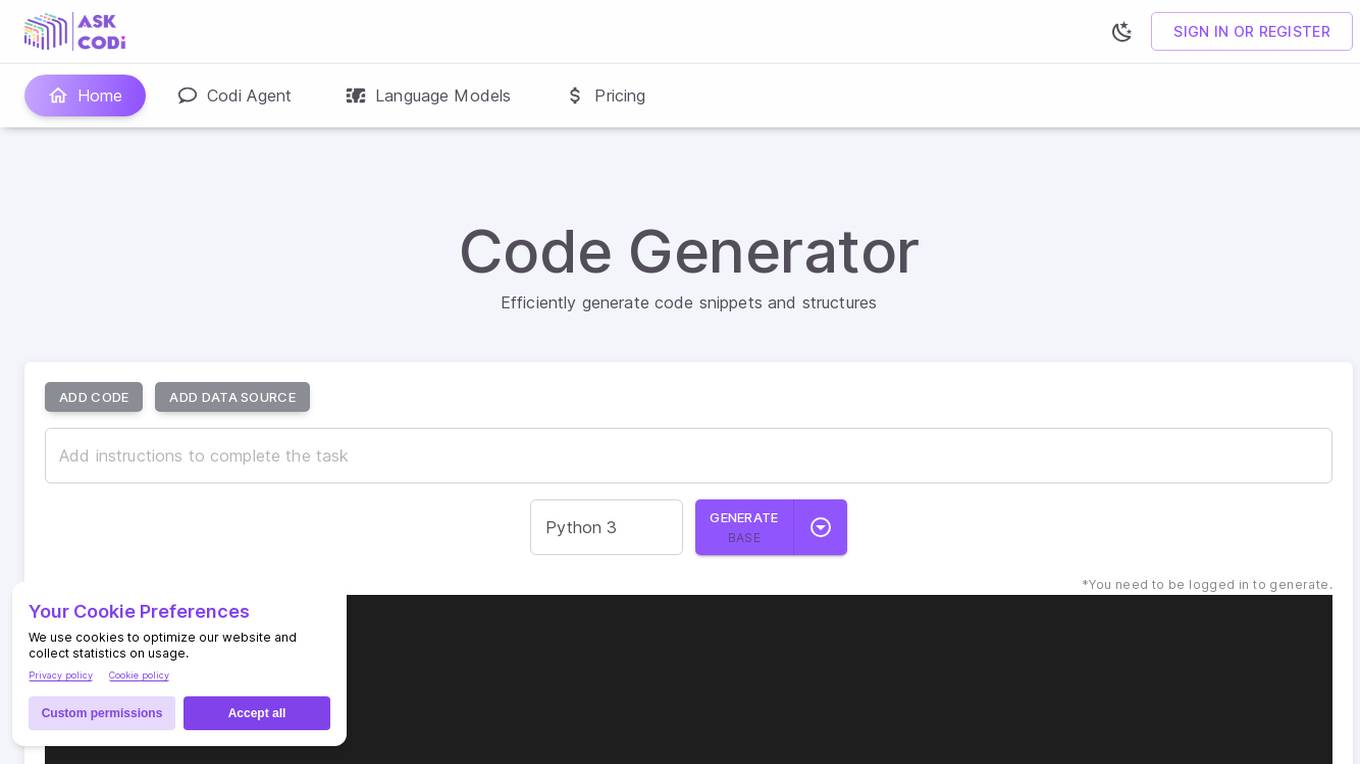
AskCodi
AskCodi is an AI coding assistant that helps developers write code more efficiently. It provides real-time suggestions, code completion, and error detection to streamline the coding process. With its advanced algorithms, AskCodi can understand the context of the code and offer relevant recommendations. By leveraging machine learning techniques, AskCodi continuously learns and improves its suggestions to better assist developers in their coding tasks.
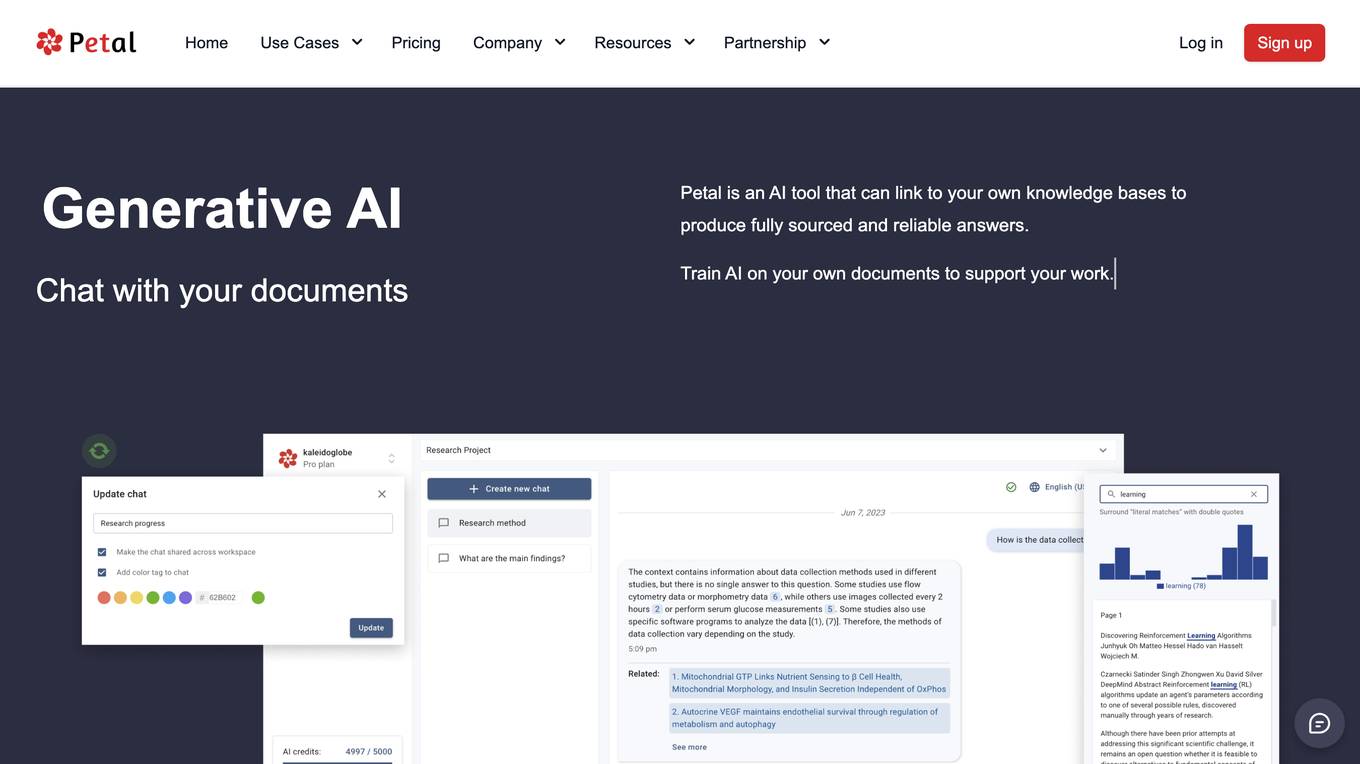
Petal
Petal is a document analysis platform powered by generative AI technology. It allows users to chat with their documents, providing fully sourced and reliable answers by linking to their own knowledge bases. Users can train AI on their documents to support their work, ensuring centralized knowledge management and document synchronization. Petal offers features such as automatic metadata extraction, file deduplication, and collaboration tools to enhance productivity and streamline workflows for researchers, faculty, and industry experts.
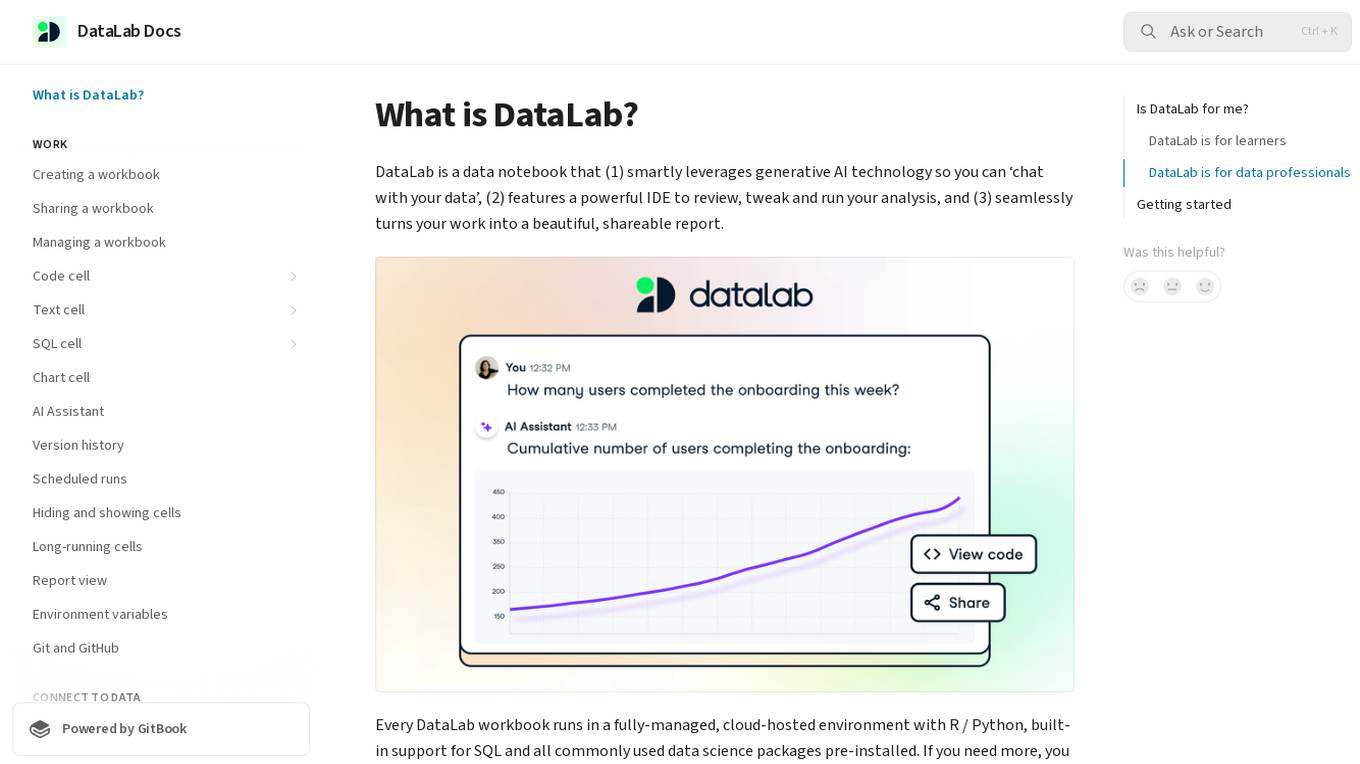
DataLab
DataLab is a data notebook that smartly leverages generative AI technology to enable users to 'chat with their data'. It features a powerful IDE for analysis, and seamlessly transforms work into shareable reports. The application runs in a cloud-hosted environment with support for R/Python, SQL, and various data science packages. Users can connect to external databases, collaborate in real-time, and utilize an AI Assistant for code generation and error correction.
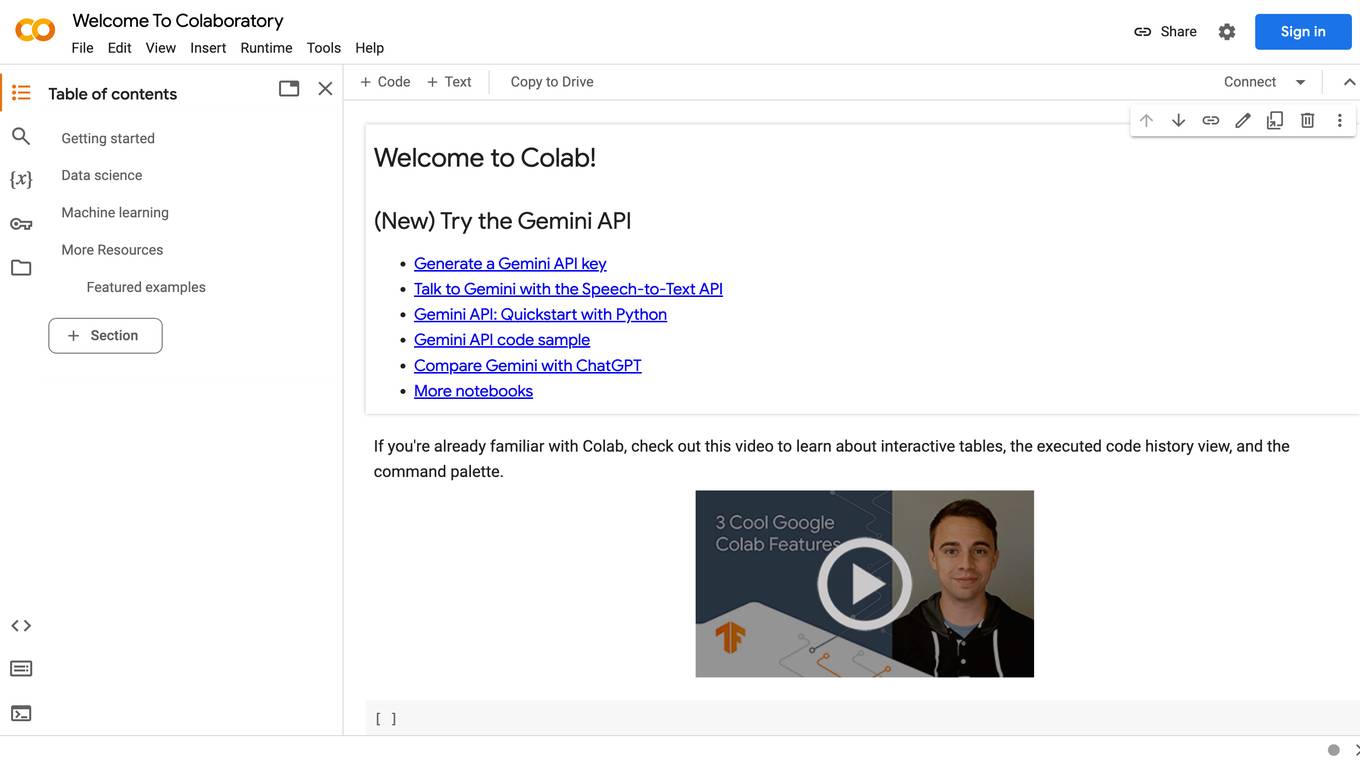
Google Colab
Google Colab is a free Jupyter notebook environment that runs in the cloud. It allows you to write and execute Python code without having to install any software or set up a local environment. Colab notebooks are shareable, so you can easily collaborate with others on projects.
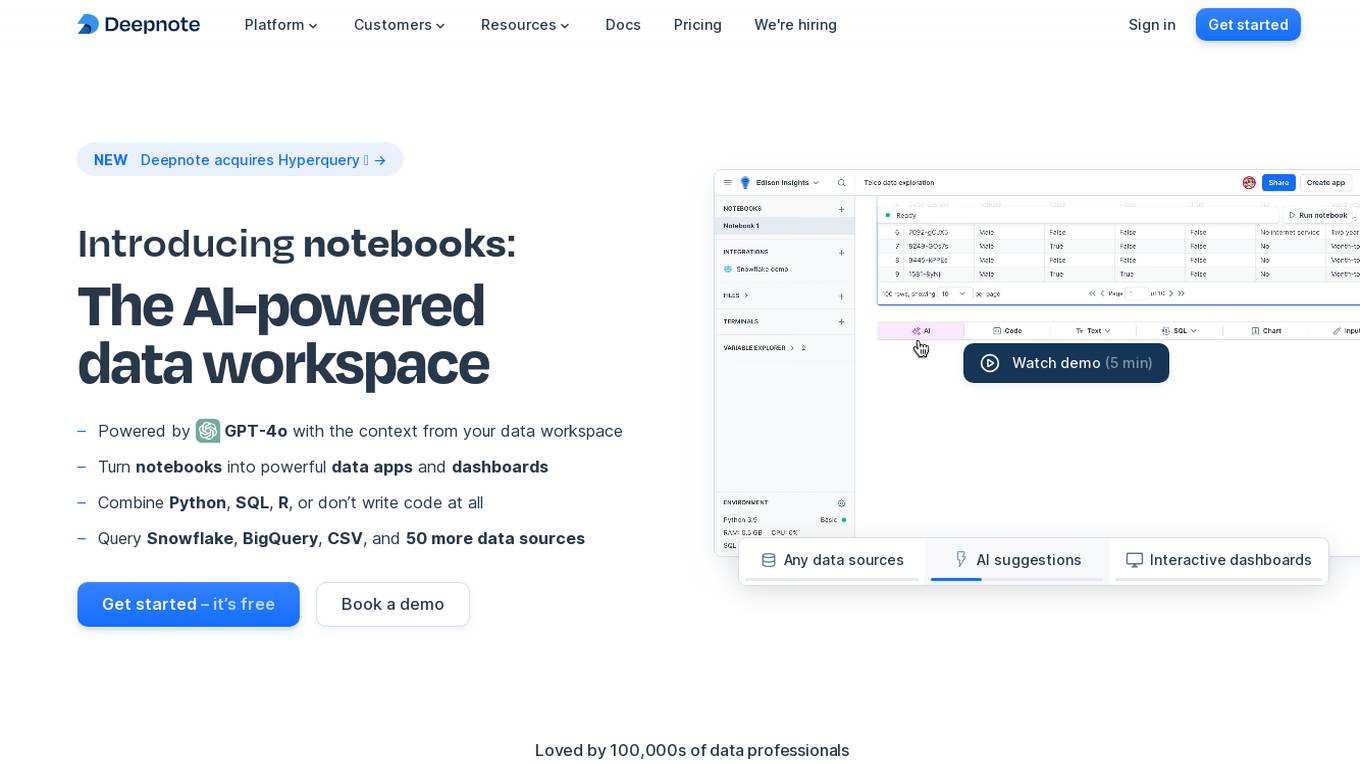
Deepnote
Deepnote is an AI-powered analytics and data science notebook platform designed for teams. It allows users to turn notebooks into powerful data apps and dashboards, combining Python, SQL, R, or even working without writing code at all. With Deepnote, users can query various data sources, generate code, explain code, and create interactive visualizations effortlessly. The platform offers features like collaborative workspaces, scheduling notebooks, deploying APIs, and integrating with popular data warehouses and databases. Deepnote prioritizes security and compliance, providing users with control over data access and encryption. It is loved by a community of data professionals and widely used in universities and by data analysts and scientists.
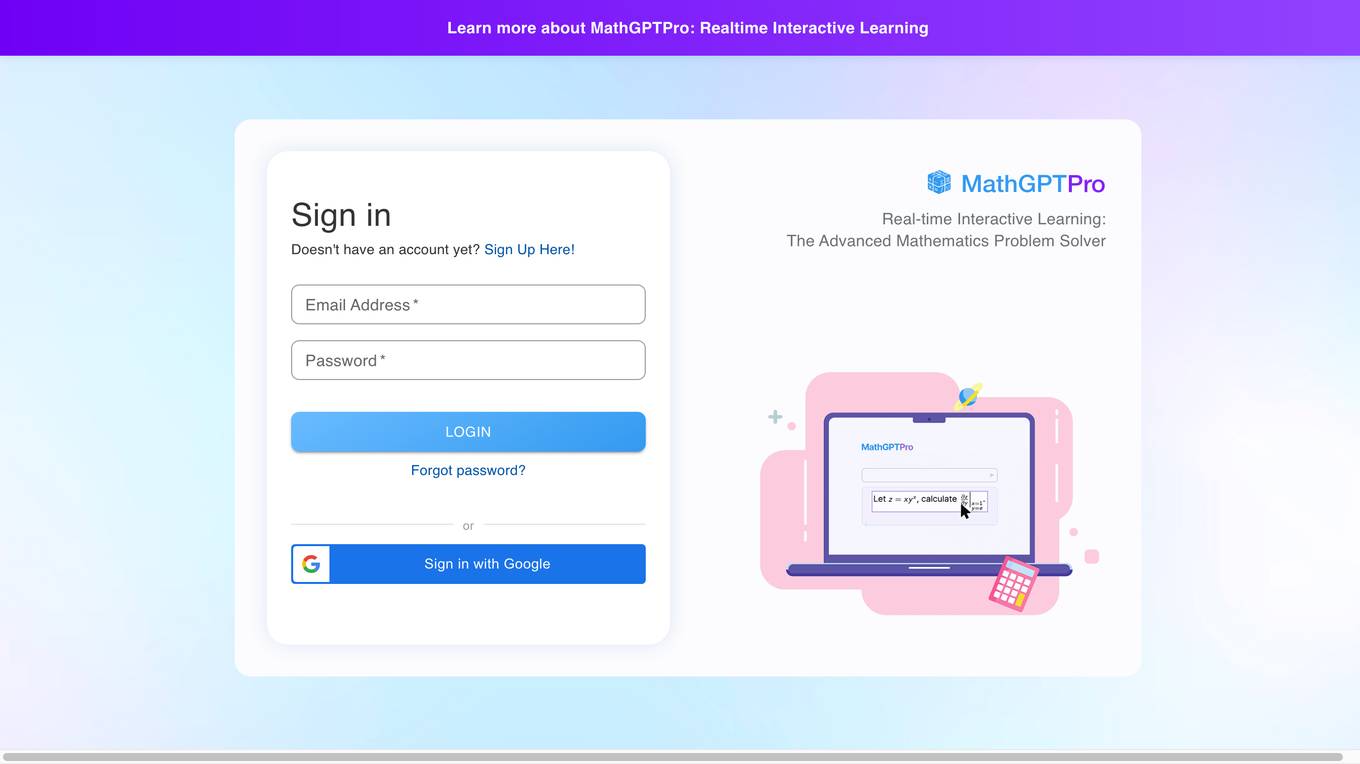
MathGPT
MathGPT is an AI math solver and calculator that provides users with the ability to solve various mathematical problems, including calculations, derivatives, and integrations. It also offers a question notebook feature and AI tutoring capabilities. Users can input mathematical expressions and equations, and MathGPT will provide step-by-step solutions and answers. The tool supports a wide range of mathematical functions and constants, making it a versatile and efficient tool for students, educators, and anyone needing assistance with math problems.
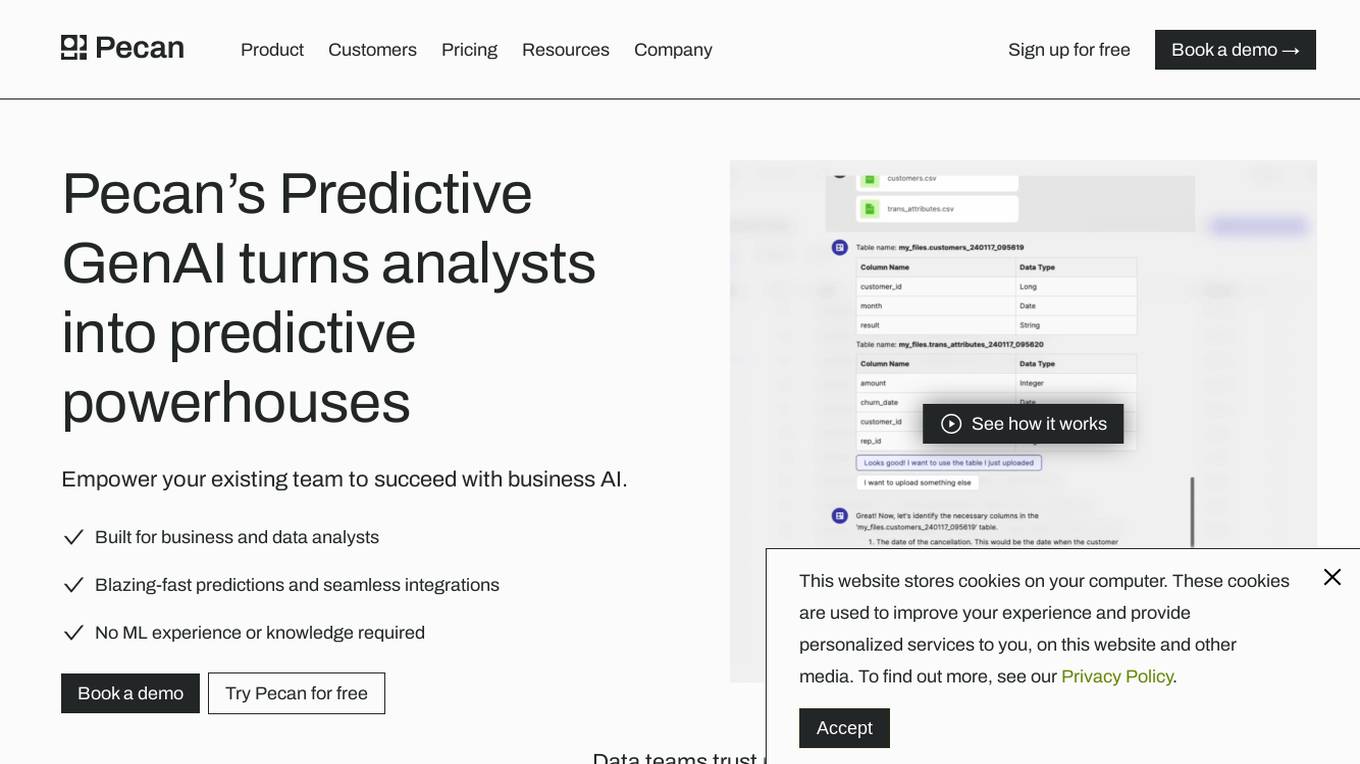
Pecan AI
Pecan AI is a predictive analytics software product designed for business and data analysts. It offers blazing-fast predictions, seamless integrations, and requires no machine learning experience. Pecan empowers teams to succeed with impactful AI models, automates data preparation, and features a Predictive Chat, Predictive Notebook, and guided or DIY predictive modeling tools. The platform helps users build trustworthy predictive models, optimize campaigns, and make data-driven decisions to drive business growth.
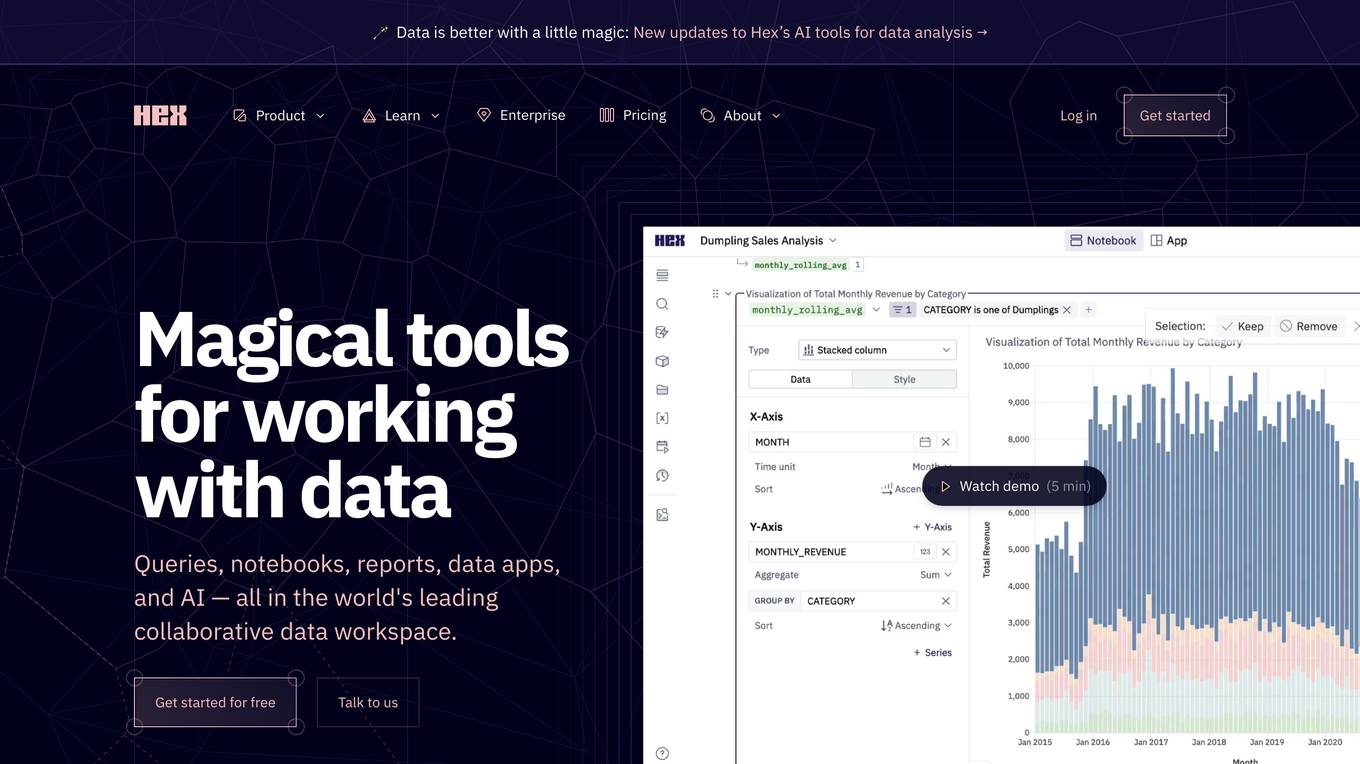
Hex
Hex is a collaborative data workspace that provides a variety of tools for working with data, including queries, notebooks, reports, data apps, and AI. It is designed to be easy to use for people of all technical skill levels, and it integrates with a variety of other tools and services. Hex is a powerful tool for data exploration, analysis, and visualization.
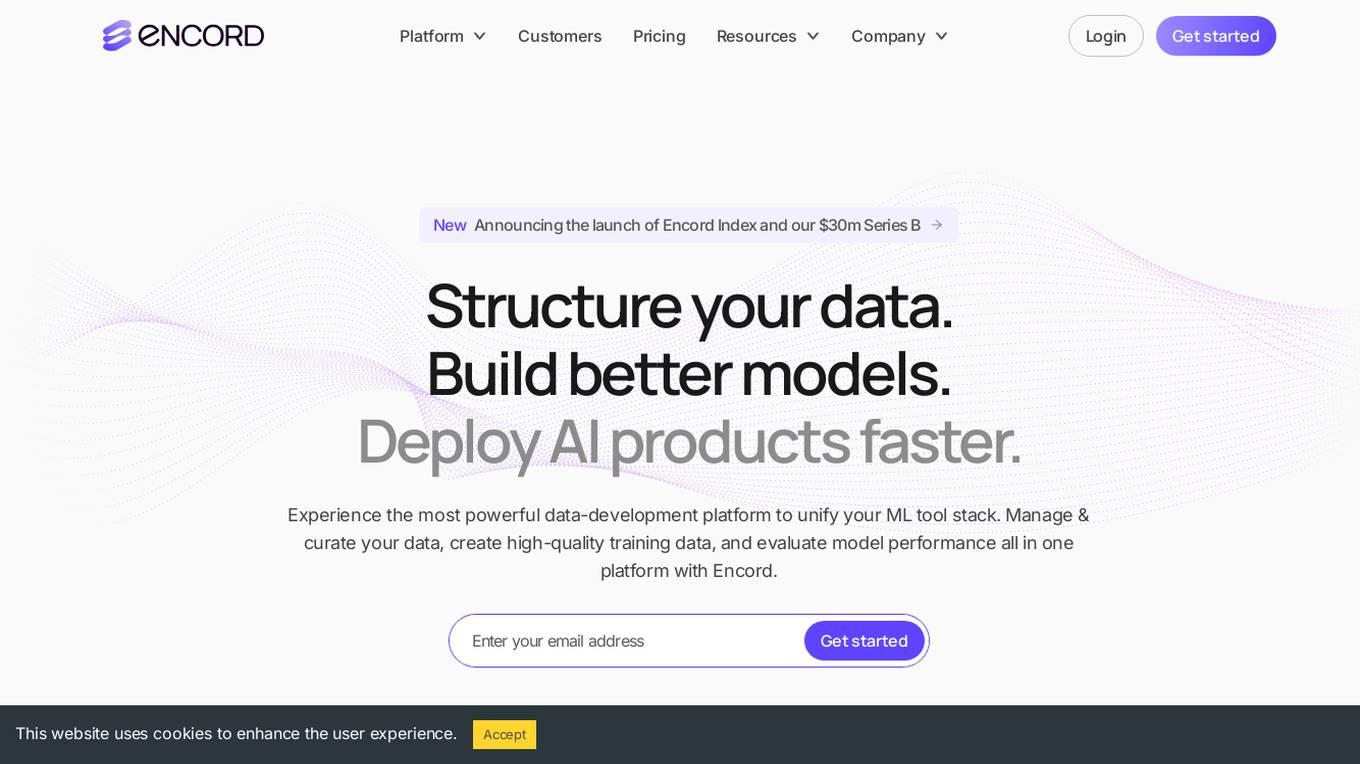
Encord
Encord is a leading data development platform designed for computer vision and multimodal AI teams. It offers a comprehensive suite of tools to manage, clean, and curate data, streamline labeling and workflow management, and evaluate AI model performance. With features like data indexing, annotation, and active model evaluation, Encord empowers users to accelerate their AI data workflows and build robust models efficiently.
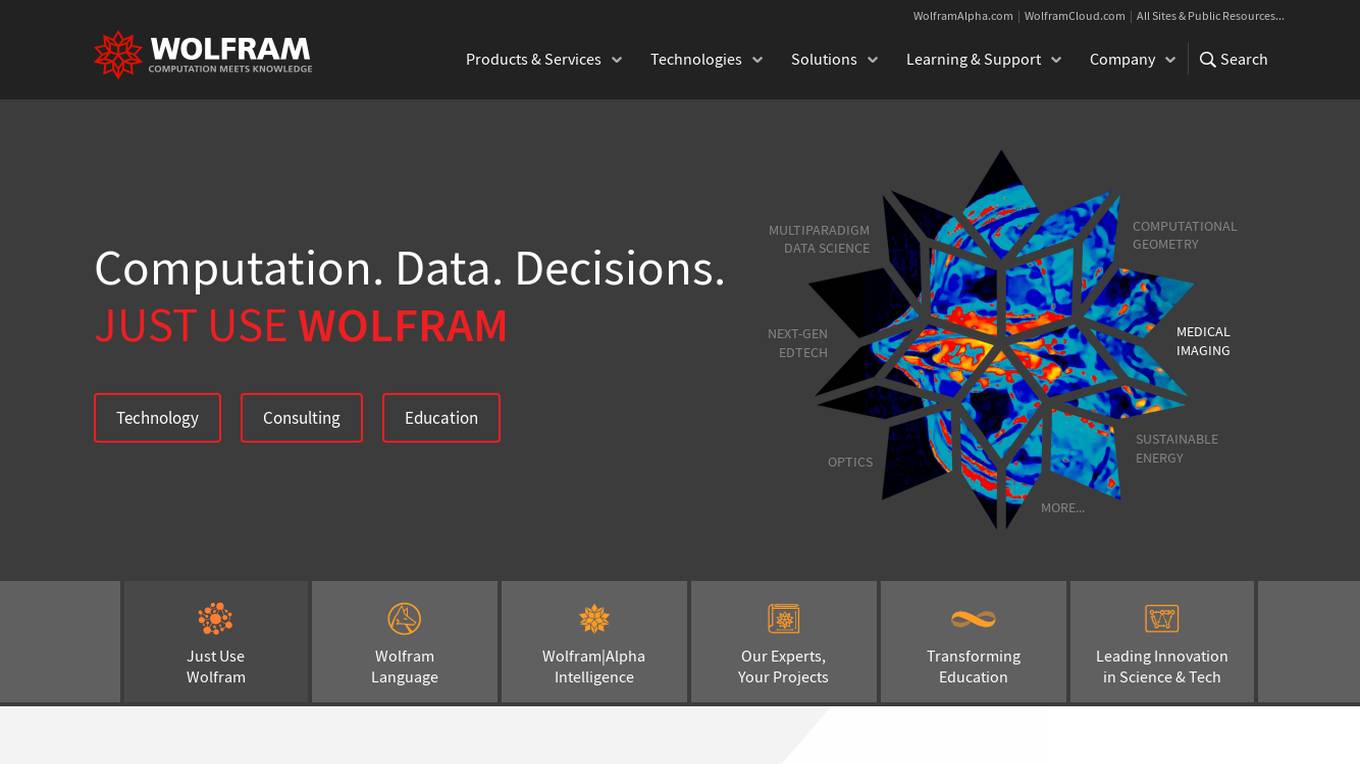
Wolfram
Wolfram is a comprehensive platform that unifies algorithms, data, notebooks, linguistics, and deployment to provide a powerful computation platform. It offers a range of products and services for various industries, including education, engineering, science, and technology. Wolfram is known for its revolutionary knowledge-based programming language, Wolfram Language, and its flagship product Wolfram|Alpha, a computational knowledge engine. The platform also includes Wolfram Cloud for cloud-based services, Wolfram Engine for software implementation, and Wolfram Data Framework for real-world data analysis.
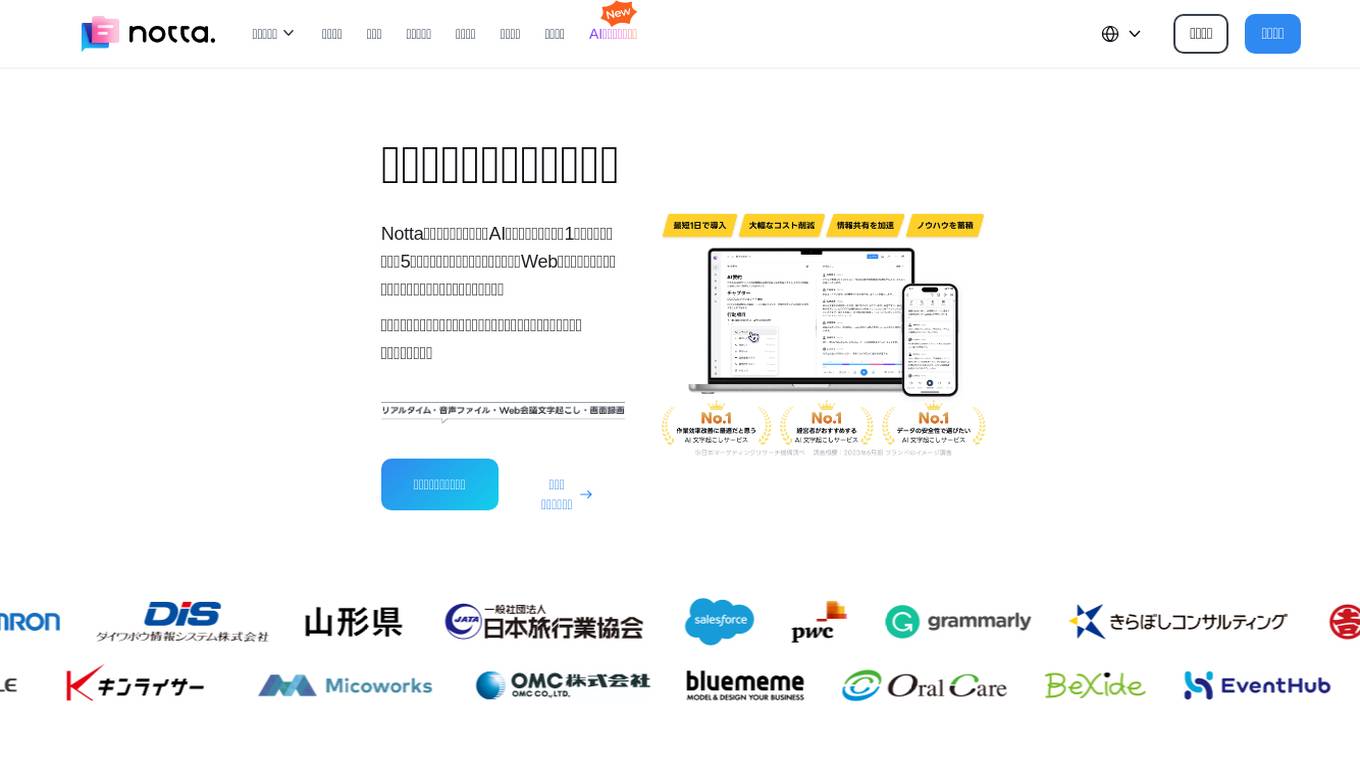
Notta
Notta is an AI-powered note-taking app that helps you organize, search, and share your notes. With Notta, you can easily create and manage notebooks, add tags and labels to your notes, and collaborate with others in real-time. Notta also offers a variety of features to help you stay organized, including a built-in search engine, a customizable interface, and support for a variety of file formats. Whether you're a student, a professional, or just someone who wants to get more organized, Notta is the perfect note-taking app for you.
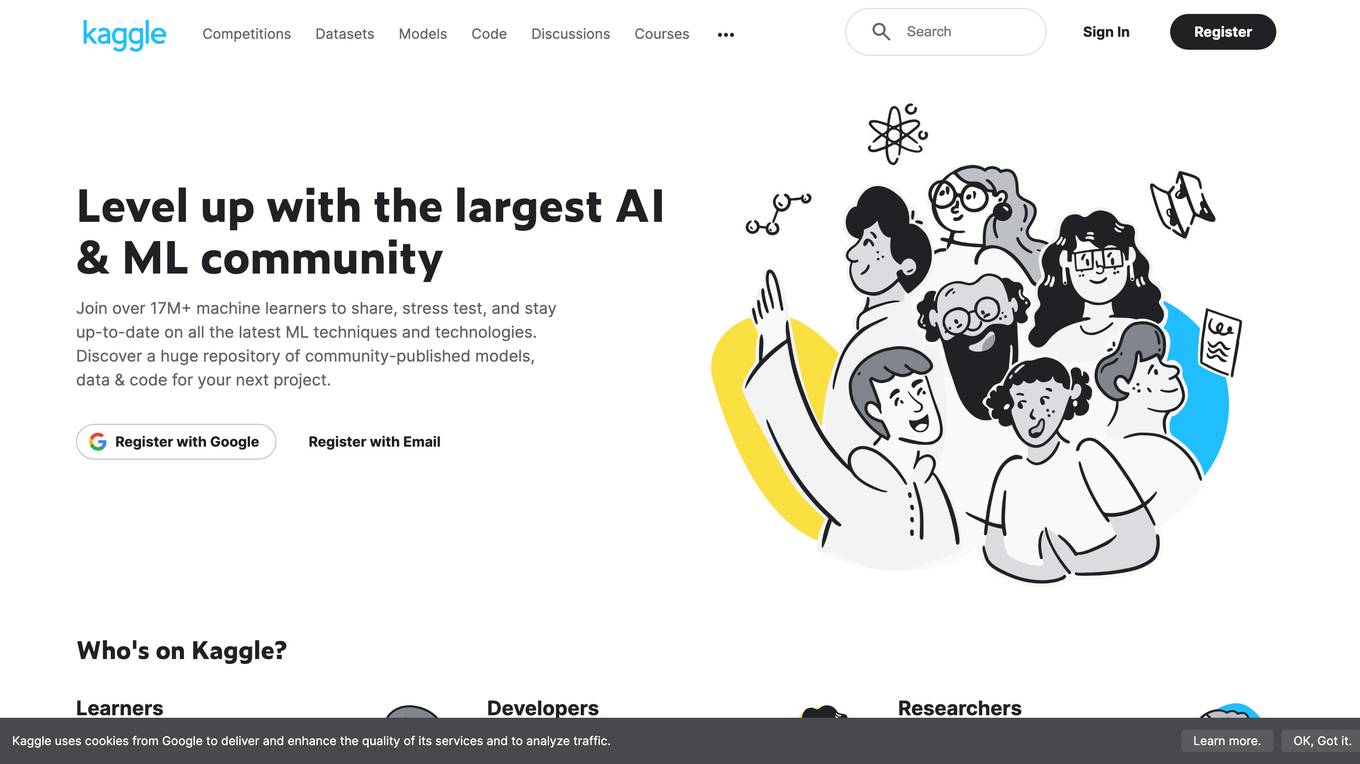
Kaggle
Kaggle is a popular platform for machine learning and data science enthusiasts to collaborate, learn, and compete. It provides a community-driven environment where users can access datasets, participate in competitions, share code and insights, and engage in discussions. With a vast repository of datasets and notebooks, Kaggle offers a valuable resource for both beginners and experienced professionals in the field of data science and machine learning.
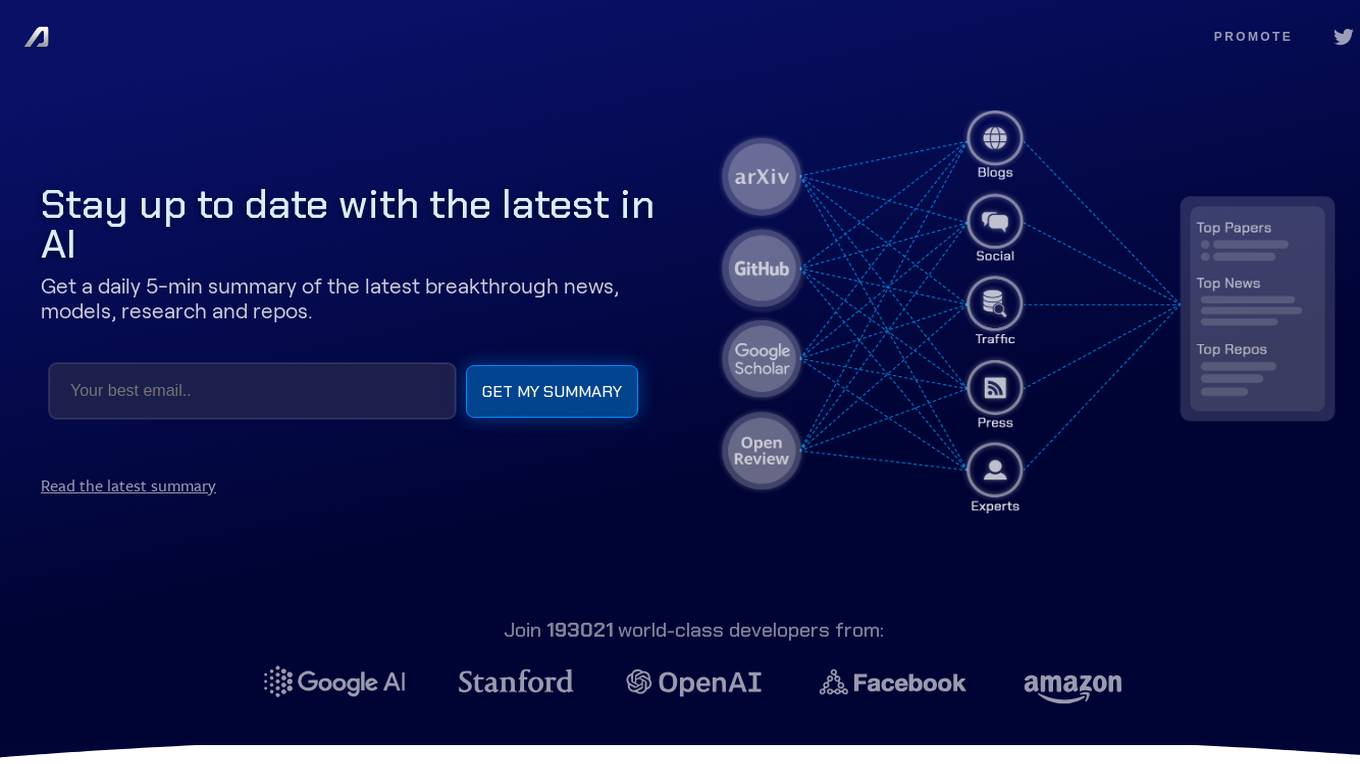
AlphaSignal
AlphaSignal is a leading technical newsletter in the field of Artificial Intelligence (AI), providing a daily 5-minute summary of the latest breakthrough news, models, research, and repositories. It aims to keep AI developers and researchers up to date with the most relevant topics discussed by top researchers in the industry. The newsletter covers state-of-the-art projects, notebooks, and GitHub repositories, offering valuable insights for practitioners in the AI domain.
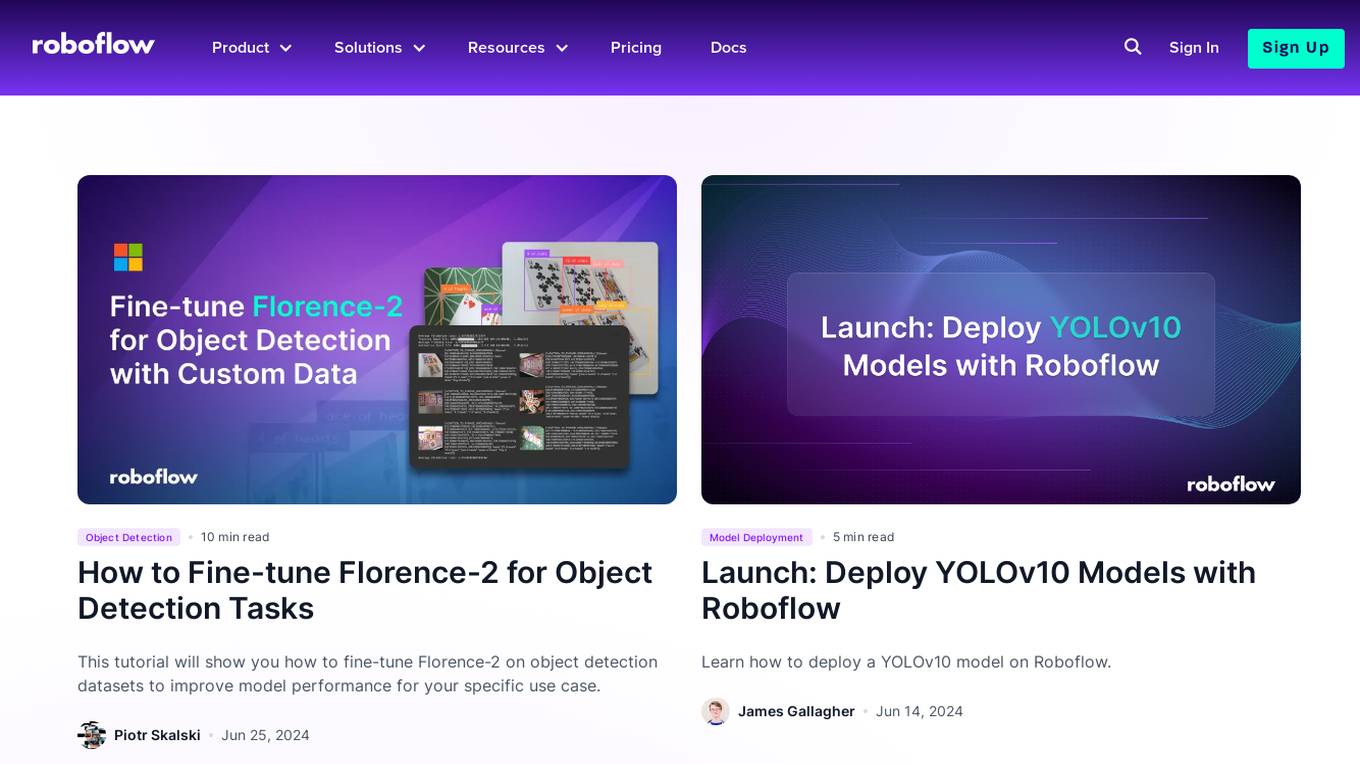
Roboflow
Roboflow is an AI tool designed for computer vision tasks, offering a platform that allows users to annotate, train, deploy, and perform inference on models. It provides integrations, ecosystem support, and features like notebooks, autodistillation, and supervision. Roboflow caters to various industries such as aerospace, agriculture, healthcare, finance, and more, with a focus on simplifying the development and deployment of computer vision models.
1 - Open Source AI Tools
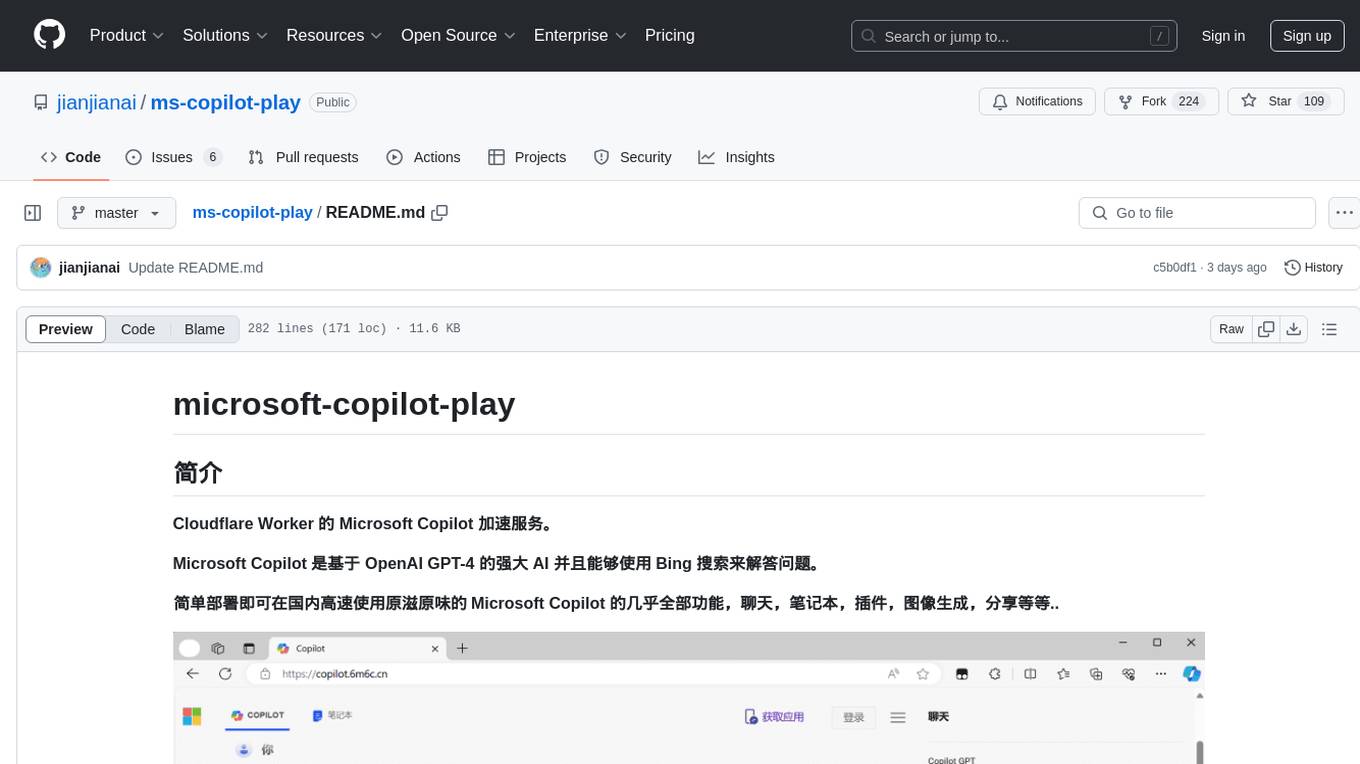
ms-copilot-play
Microsoft Copilot Play is a Cloudflare Worker service that accelerates Microsoft Copilot functionalities in China. It allows high-speed access to Microsoft Copilot features like chatting, notebook, plugins, image generation, and sharing. The service filters out meaningless requests used for statistics, saving up to 80% of Cloudflare Worker requests. Users can deploy the service easily with Cloudflare Worker, ensuring fast and unlimited access with no additional operations. The service leverages the power of Microsoft Copilot, based on OpenAI GPT-4, and utilizes Bing search to answer questions.
3 - OpenAI Gpts
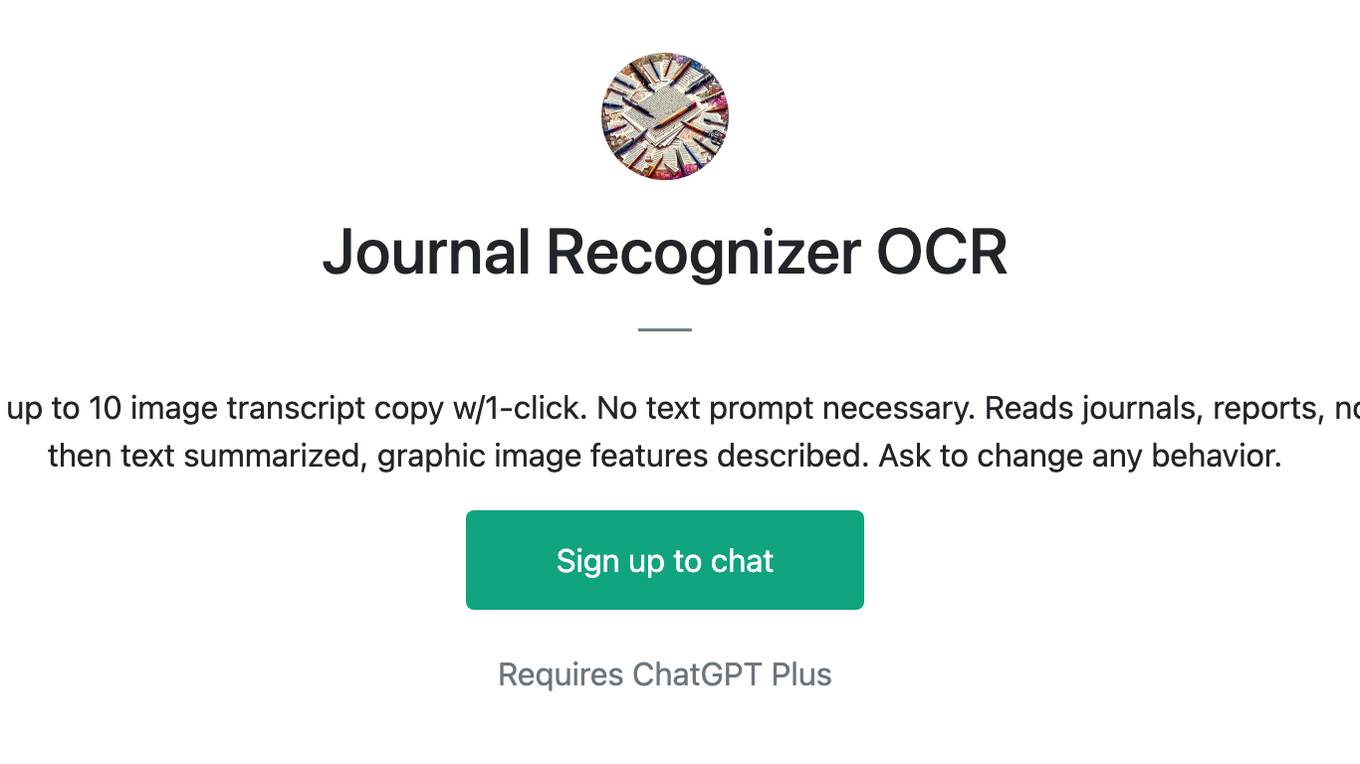
Journal Recognizer OCR
Optimized OCR for Handwritten Notebooks, up to 10 image transcript copy w/1-click. No text prompt necessary. Reads journals, reports, notes. All handwriting transcribed verbatim, then text summarized, graphic image features described. Ask to change any behavior.
